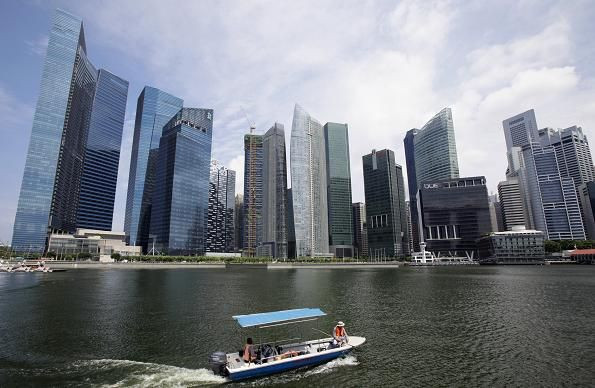Singapore, Now World's Fastest Growing Wealth Management Hub, Not Free From Tax Evasion And Other Crimes

Singapore has overtaken Switzerland, emerging as the world’s fastest-growing wealth management center, but banks in the Southeast Asian nation have a long way to go toward tax transparency, particularly in regards to questionable investments from other Asian countries.
Singapore’s wealth management industry grew 22 percent in 2012 to 1.63 trillion Singaporean dollars ($1.29 trillion US), and its share of global offshore wealth is expected to outstrip Switzerland by 2020, according to data from WealthInsight, an industry research group.
Learning from the recent scandal when Swiss banks, including UBS (NYSE:UBS) and Credit Suisse Group (NYSE:CS), were named by the International Consortium of Investigative Journalists as having helped set up offshore companies and trusts in tax havens for relatives of current and former Chinese Communist Party leaders, the Singapore financial regulator, the Monetary Authority of Singapore has taken a tough stance by making it a criminal offense for banks to accept undeclared or laundered money as of July 2013, Swiss Info, a Swiss news portal, reported on Tuesday.
“Our message to tax criminals is loud and clear: their money is not welcome in Singapore,” said Ravi Menon, the managing director of MAS, at the time. “And our message to our financial institutions is also loud and clear: If you suspect the money is not clean, don’t take it.”
But unofficially, some Singapore-based experts have questioned whether the official stance will translate into actual action, instead of being an appeasement adopted to avoid the same type of Western backlash that has been visited on Switzerland in recent years.
“While Singapore pays lip service to information exchange, it continues to turn a blind eye to assets derived from tax evasion and outright theft,” said Kenneth Jeyaretnam, opposition politician and Secretary General of Singapore's Reform Party, according to Swiss Info.
In particular, much of the growth of the wealth management sector in Singapore comes from surrounding countries like Indonesia, Thailand and the Philippines, which generate high levels of wealth, and funds flowing from these states are often not subjected to the same scrutiny as Western clients'.
“It may well be the case that different approaches, at this stage, are being taken in respect of different countries, with less urgency and a lighter touch applying to assets coming from developing countries, many of which are [Singapore’s] neighbors, than to assets originating from Western Europe and the U.S.,” said Philip Marcovici, who has advised governments on the crackdown on tax evasion.
The issue is not unique to Singapore, Marcovici added, but is one replicated across the globe as the world adapts to the competing interests of increasing tax transparency, as well as respecting the privacy needs of wealthy clients.
Ultimately, Singapore now has the responsibility of leading the charge toward transforming the financial industry into a more transparent one, which Switzerland had failed to do, Marcovici added, but Singapore cannot go at it alone.
“There needs to be a lot more global dialogue and leadership because there is a legitimate role for offshore facilities, providing that people play by the rules,” Marcovici told Swiss Info.
© Copyright IBTimes 2024. All rights reserved.




















